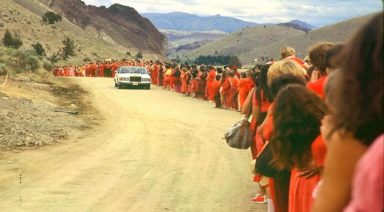The Three Questions With Don Miguel Ruiz

Everything we do is connected to an agreement we have made. This is the premise proposed by Don Miguel Ruiz, best-selling author, and renowned spiritual teacher. Ruiz has spent decades guiding people to personal freedom through his profound insights regarding the nature of human reality.
In “The Three Questions with Don Miguel Ruiz,” we get a glimpse of how we shape our own lives, consciously and unconsciously, through our interactions with others and the promises we make to them and ourselves. This discussion gives us pause to think about what we really know versus what we have learned from others.
The youngest of 13 children, Don Miguel Ruiz was born in rural Mexico to parents who practiced ancient Toltec traditions and used their healing abilities to uplift others. After graduating from medical school in Mexico City, Ruiz began practicing neurosurgery with his older brother in Tijuana.
Not long after, however, a near-fatal car accident completely altered his life’s course, leading him to leave his career in medicine in search of a more essential truth about life. With his mother’s guidance, steeped in traditional native teachings, he soon discovered his own path to awareness that evolved into a deep understanding of the physical universe and the virtual world of the mind.
Ruiz’s self-discovery led him to publish a number of highly successful books, including “Toltec Wisdom Series,” “The Four Agreements,” “The Mastery of Love,” “The Voice of Knowledge,” “The Four Agreements Companion Book,” “The Circle of Fire,” and “The Fifth Agreement.” The Toltec Wisdom books have sold more than 12 million copies, and have been published in 46 languages worldwide.
Don Miguel Ruiz’s message is simple yet profound: Our lives are guided and affected by information that is passed along generationally — right or wrong. But instead of simply adhering to the ideas of others, we need to “let everything we do and say be an expression of the beauty of our heart, always based on love,” and this will lead us to happiness, fulfillment, and helping others.
In Gaia’s interview with Ruiz, he tells Lisa Garr his concept of “The Four Agreements” is a challenge to everything society would have us believe. To clarify, Ruiz explains that we learn all sorts of rules and behaviors as we develop, and we are trained to please others, which prepares us to be a part of society.
But the problem comes when we adopt beliefs that may not be true and then apply them to ourselves. According to Ruiz, we judge ourselves and others too harshly, which leads to disharmony. We must be more discerning and authentic in what we accept as true, as well as how we treat and interact with others. He advises us to, “communicate with others as clearly as you can to avoid misunderstandings, sadness, and drama. With just this one agreement, you can completely transform your life.”
If you’re interested in finding greater depth to your life and purpose, as well as how to act and react from the heart, instead of through learned behaviors and rote thoughts, Ruiz’s message is a life-changer. His message is a guide for increased awareness, a happier life, avoiding problems, and living in the moment. Life is short, he says, which is why it’s time to begin living without preconceptions and harsh judgments.
Research Shows Gratitude Practices Lower Inflammation

Researchers have uncovered the potential of a daily gratitude practice to heal the body and mind.
While research in the field of positive psychology has shown the clear benefits of positive attributes such as compassion and empathy, new studies suggest that gratitude may have the biggest effect of all.
Dr. Paul Mills has been studying the effects of gratitude as a professor at the University of California San Diego and as Director of Research at the Chopra Foundation.
“The way I define gratitude is, it’s a way of seeing the world with a sense of heartfulness; a sense of embracing-ness; a sense of appreciation for all that is being experienced. Typically people differentiate gratitude from thankfulness — it’s a response in exchange for something. Gratitude really, at its foundation, it’s more of a dispositional set where we walk around with gratitude for everything that’s going, just really the gift of life.”
Over the last several years, scientific studies into the psychological and physiological benefits of gratitude have grown exponentially.
“I think one of the main reasons that research on gratitude has taken off more than other areas that we typically could call positive psychology, is because the findings, the significance, in all the studies is so high and impactful. So many of the studies that have been looking at gratitude find more and more significant effects related to health and wellbeing.”
Some of the more recent studies on gratitude have focused on the physiological benefits to the heart.




































